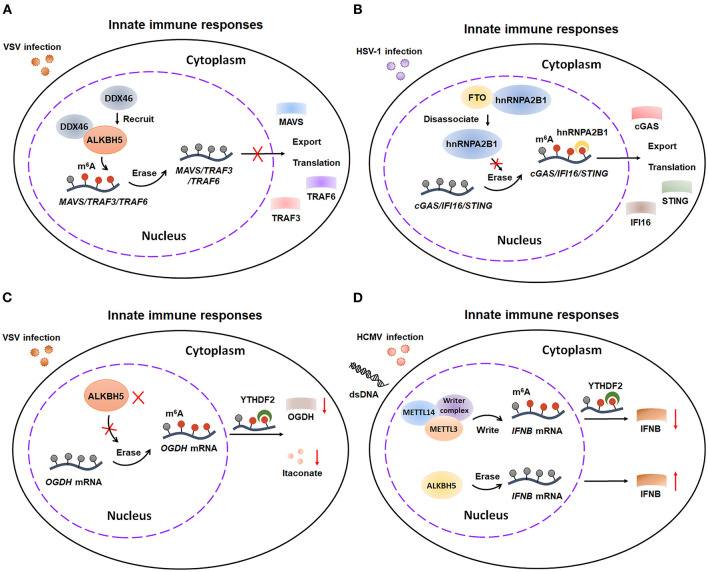Figure 4.
m6A modification is involved in antiviral responses of innate immunity. (A) DDX46, which forms a complex with ALKBH5, inhibits antiviral responses by reducing m6A modification-mediated nucleus export and translation of MAVS, TRAF3, and TRAF6 transcripts. (B) hnRNPA2B1 enhances antiviral responses by preventing FTO-mediated demethylation on STING, CGAS, and IFI16 transcripts. (C) During VSV infection, the enzymatic activity of ALKBH5 is decreased, which results in increasing m6A level. The upregulation of m6A modification leads to decreasing the expression of OGDH transcripts and reprograming host cell metabolism, which consequently enhancing antiviral responses. (D) m6A modification suppresses antiviral responses by repressing the production and stability of IFNB mRNA stability. VSV, vesicular stomatitis virus; TRAF3, TNF receptor-associated factor 3; TRAF6, TNF receptor-associated factor 6; HSV-1, herpes simplex virus-1; STING, stimulator of interferon response CGAMP interactor 1; CGAS, cyclic GMP-AMP synthase; IFI16, interferon gamma inducible protein 16; OGDH, α-ketoglutarate dehydrogenase; HCMV, Human cytomegalovirus; dsDNA, double stranded DNA; IFNB, IFN-beta.

